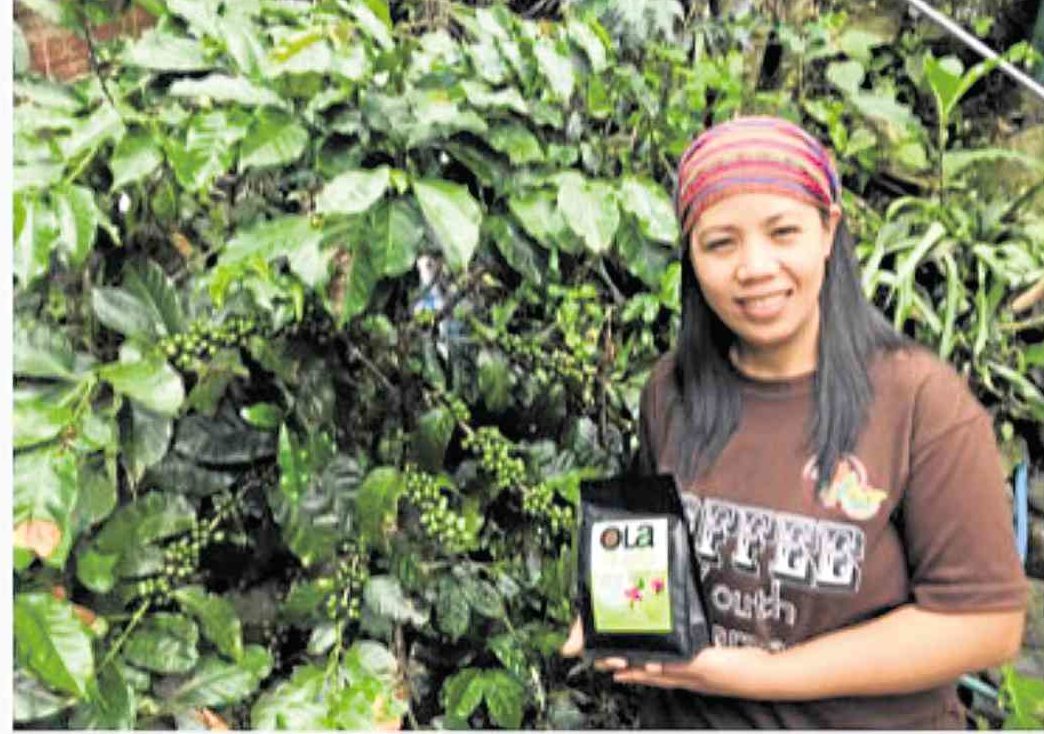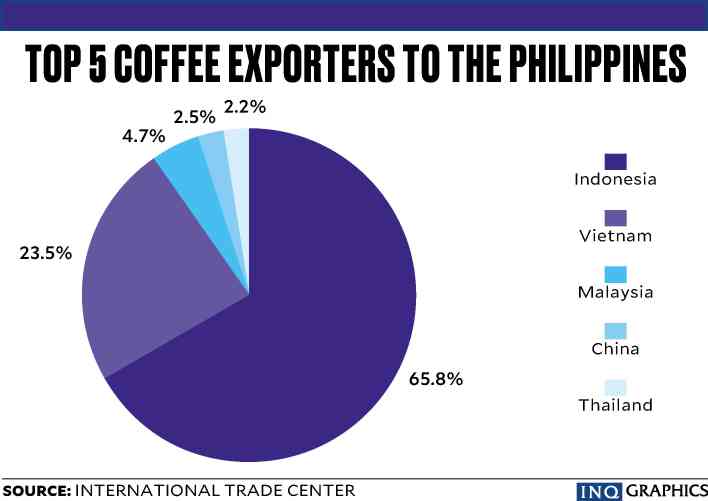Want to increase local coffee output? Bring in more women

Jennifer Rimando, IWCA founding member. A certified Arabica Q grader and trainer, Rimando cultivates her own coffee farm in Aguid, Sagada. —CONTRIBUTED PHOTO
More meticulous, better tasters and better business negotiators.
These characteristics of women working in the coffee industry could help greatly in improving the quantity and quality of the Philippines’ coffee production, which is still at an all-time low compared to its Southeast Asian neighbors, says a report by the US Agency for International Development (USAID).
In “Women in Coffee: The Role of Women-led Businesses in Southeast Asia’s Coffee Value Chains,” USAID’s Green Invest Asia presents the results of an eight-month study conducted in Cambodia, Indonesia, Vietnam and the Philippines to “learn more about the role that women-led businesses play in the coffee value chain in Southeast Asia, their competitive advantage and opportunities for growth.”
Green Invest Asia is a platform that links private investors to agribusinesses and forestry companies that are committed to sustainable land use practices in Southeast Asia.
The study, done in collaboration with International Women’s Coffee Alliance (IWCA), found that women’s competitive advantage in these four markets’ coffee industry lie, firstly, in their meticulousness when it comes to determining bean quality.
Compared to men, women are better at picking, sorting and drying coffee beans, which improves produce quality—a critical factor in the industry today, since buyers have become more focused on sourcing high-quality coffee.
The study also revealed that women are, by default, better tasters than men, because they, biologically, have more sensory glands, and therefore have stronger sensory recollection. Women also perform at least half the work in coffee farms across the region.
Focusing on country specifics, the report states that in the Philippines, women are generally present throughout the coffee value chain—from farmers, pickers and sorters, to managers, business owners, roasters, Q graders, cuppers and retailers.
They are particularly well-represented, the report states, in the production of processing of premium Arabica.
The study specifically makes note of coffee farming in the Cordillera Administrative Region, where work is mostly done by women, not men.
It also acknowledges the achievements of the Great Women Project by the Philippine Coffee Board, which has been conducting training sessions specifically for women in the coffee value chain since 2017.
Given their biological advantage when it comes to taste, the report says women consistently perform well in cupping competitions.
In the Philippines, 42 percent of Q graders—certified specialists who test, analyze, and rate coffee quality—are women.
As retailers, women representation in the coffee industry across all four countries has seen a steady increase; most are owners and coowners of coffee shops, or specialized baristas. The report cites Commune owner Rosario Juan as a local example—her café serves Philippine coffee exclusively, which is roasted in-house and sourced from a pool of personally trusted producers.
Moreover, a study of 90 women in the Philippines’ coffee industry also found that: Seventy percent increased revenues over the past two years, with 39 percent growing by at least 20 percent;
Over two-thirds expect their coffee production and services to increase in the next two years—half plan to finance this growth from savings and retained earnings; 28 percent plan to use loans from banks or microfinance institutions; and 8 percent plan to borrow from buyers;
Factors that hinder business expansion include: limited access to capital (55 percent), management of workers (9 percent) and finding and retaining skilled employees (8 percent);
When it comes to making business connections, mentorship and access to information, almost half find support in a network/association.
The fact remains, however, that Philippine coffee production is low compared to the three other markets included in the study; the report estimates that it is less than 1 percent of Vietnam’s levels (which, in 2017, was at over 1.7 million tons).
The main issues facing the industry, according to the report, are: coffee farmers’ advanced age (average is 67), as well as difficulty influencing the next generation to take up coffee farming; limited availability of quality seedlings; outdated production and postharvest processing methods; and industry fragmentation.
How can women help? The report recommends three things:
Have women focus on producing specialty and premium Arabica. Given their meticulousness in picking and sorting, giving women more opportunities in these critical tasks can not only improve coffee quality, but also drive up local demand for specialty coffee from female producers.
Improve grading and training skills. “Women with specialized skills present an opportunity for relevant coffee buyers and investors to establish a more direct link with women farmers and increase their training,” the report reads. “As female producers play a key role in tasks that determine quality, this connection will likely improve both production and quality.”
Support women coffee networks, as these established platforms can allow investors to explore business opportunities throughout the entire supply chain.
Quoting Dave D’haeze, Asia regional manager of Hans R. Neumann Stiftung foundation of the world’s leading green coffee service group Neumann Kaffe Gruppe, the report says that “the Philippines has a potential of becoming the third coffee tiger in Southeast Asia if international coffee platforms grant their support.”
And that potential may very well lie in our women.

